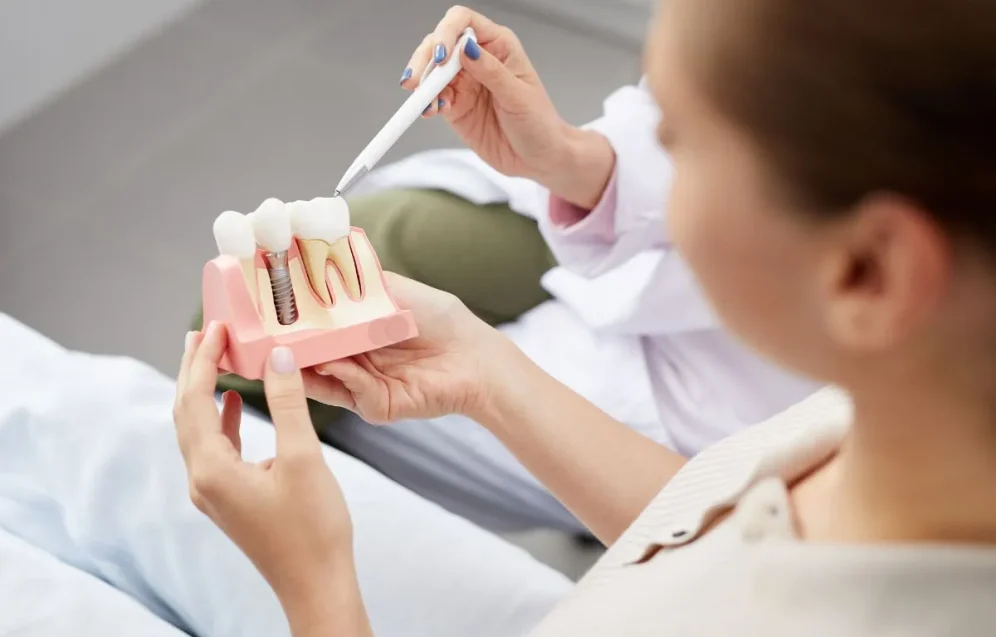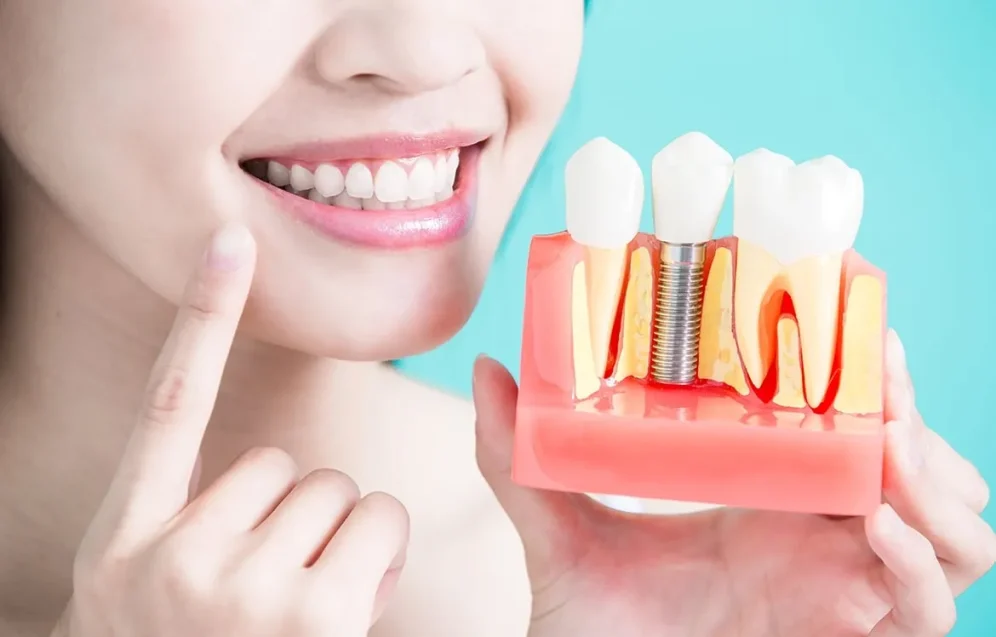Avoid Dairy After Dental Implant Surgery: Fact or Myth?
Avoid Dairy After Dental Implant Surgery: Fact or Myth?
The traditional advice to avoid dairy after dental implants stems from concerns that dairy products can increase inflammation, introduce bacteria to the surgical site, and create a coating in your mouth that traps food particles. However, modern evidence suggests this restriction may be overly cautious for most patients. At Picasso Dental Clinic, where I’ve placed thousands of implants since 2013 across our locations serving over 70,000 patients, I recommend avoiding dairy for the first 48 to 72 hours primarily to reduce bacterial exposure risk during critical early healing, not because dairy itself is inherently problematic.
Dr. Emily Nguyen
This dietary restriction confuses many patients because dairy seems harmless. I’m Dr. Emily Nguyen from Picasso Dental Clinic, and while the “no dairy” rule is commonly given after dental implant surgery, the reasoning behind it deserves explanation so you understand what you’re actually protecting against.
The Traditional Reasoning Behind No Dairy
The main concern is bacterial contamination during the vulnerable healing period. Immediately after implant placement, you have an open surgical site in your mouth. The implant is exposed to your oral environment while bone healing begins. Any bacteria introduced to this area can potentially cause infection or compromise the integration process.
Dairy products, particularly milk, yogurt, and cheese, can harbor bacteria. While pasteurization kills most harmful bacteria, dairy products still contain bacterial cultures, especially fermented products like yogurt and kefir. The theory is that these bacteria could colonize the surgical site and interfere with healing.
Another traditional concern involves dairy creating a coating or film in your mouth. This coating can trap food particles and bacteria against the surgical site, increasing infection risk. The goal during early healing is keeping the area as clean as possible, and anything that creates residue works against that objective.
Some dentists believe dairy increases mucus production and inflammation throughout the body. The thinking is that avoiding inflammatory foods during healing helps your body focus resources on the surgical site. At our Hanoi clinic, I hear this explanation frequently from patients who’ve received post-operative instructions elsewhere.
Temperature is another factor. Many dairy products are consumed cold, and extreme temperatures can cause discomfort at the surgical site or potentially affect blood clot formation in the first 24 hours after surgery.
What Modern Research Actually Shows
The evidence supporting strict dairy avoidance is actually limited. Most post-operative dietary restrictions are based on tradition and caution rather than rigorous scientific studies demonstrating harm from specific foods. I’ve followed dental implant research closely throughout my decade of practice, and I haven’t seen compelling studies proving dairy consumption causes implant failure.
The inflammation concern lacks strong support. While some research suggests dairy may promote inflammation in certain individuals, particularly those with lactose intolerance or dairy sensitivities, there’s no clear evidence that moderate dairy consumption during implant healing causes clinically significant problems in most patients.
Regarding bacterial concerns, your mouth already contains hundreds of bacterial species. The bacteria in pasteurized dairy products aren’t necessarily more harmful than those already present. Good oral hygiene and prescribed antibiotics address bacterial risks more effectively than dietary restrictions alone.
At Picasso Dental Clinic locations serving patients from 65 nationalities, I’ve observed that cultural dietary patterns vary enormously. Some cultures consume significant dairy; others consume almost none. Implant success rates don’t correlate clearly with these dietary differences when proper post-operative protocols are followed.
My Practical Recommendations for Patients
I take a moderate, evidence-based approach to post-implant dietary restrictions. For the first 48 to 72 hours after surgery, I do recommend avoiding dairy products. This isn’t because I’m certain dairy causes problems, but because the potential risk during the most vulnerable healing period outweighs the temporary inconvenience of avoiding it.
During this critical early period, blood clots are forming, initial healing begins, and infection risk peaks. Eliminating any potential bacterial source makes sense as a precautionary measure. Dairy is easy enough to avoid for two to three days without nutritional consequences.
After the first few days, I allow patients to reintroduce dairy gradually if they have no complications. Room temperature dairy products are preferable to very cold ones initially. Plain yogurt without added sugars actually provides probiotics that may support oral health, though I suggest waiting until the surgical site has sealed over.
For patients with existing lactose intolerance or dairy sensitivities, avoiding dairy permanently makes sense regardless of implant surgery. These individuals often experience inflammation or digestive issues from dairy that could indirectly affect healing by stressing the body.
At our Ho Chi Minh City and Da Nang clinics, I emphasize that what you do eat matters as much as what you avoid. Focus on protein-rich foods that support healing, stay hydrated, maintain excellent oral hygiene, and take prescribed medications consistently.
Foods That Actually Matter More
Rather than obsessing over dairy, patients should focus on foods with clearer evidence for affecting implant healing. Smoking and alcohol consumption definitively impair healing and increase failure rates. I’m absolutely strict about no smoking after implant surgery.
Extremely hot foods and beverages can disrupt blood clots and cause pain at the surgical site. I recommend room temperature or lukewarm foods for the first 24 to 48 hours. Very cold foods might cause discomfort but aren’t necessarily harmful after the initial day.
Hard, crunchy, or chewy foods risk mechanical trauma to the surgical site. Avoid nuts, chips, tough meats, and sticky foods for at least a week. The implant needs undisturbed healing time without pressure or pulling forces.
Sugary foods and beverages create an environment that promotes bacterial growth. Sugar feeds harmful bacteria that could compromise the surgical site. I’m more concerned about patients drinking sugary sodas or eating candy after implant surgery than I am about them having some cheese or milk.
Adequate protein intake supports tissue healing and immune function. Soft protein sources like eggs, fish, well-cooked beans, and smooth nut butters help your body heal efficiently.
When to Strictly Follow Restrictions
Some patients should be more cautious about dairy than others. If you have compromised immune function from diabetes, autoimmune conditions, or medications, stricter dietary precautions make sense. Your body has reduced capacity to fight potential infections.
If you develop any signs of infection like persistent pain, swelling, fever, or discharge, contact your dentist immediately regardless of your diet. Infection requires professional treatment, not just dietary changes.
Patients with known dairy sensitivities should obviously continue avoiding dairy after implant surgery since it causes inflammation in their specific case.
If you have questions about post-operative dietary guidelines or concerns about your healing after dental implant placement, I’m available at any Picasso Dental Clinic location in Hanoi, Da Nang, Ho Chi Minh City, or Da Lat.















